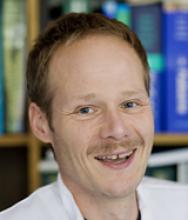- Home
- About
- Partners
- Newcastle University
- University of L'Aquila
- University of Manchester
- Alacris Teranostics GmbH
- University of Pavia
- Polygene
- Consiglio Nazionale delle Ricerche
- INSERM
- Certus Technology
- Charité Universitaet Medizin
- GATC Biotech
- University Medical Center Hamburg Eppendorf
- Evercyte GmbH
- University Hospital of Cologne
- PRIMM Srl
- University of Freiburg
- University of Antwerp
- Finovatis
- Research
- SYBIL at a glance
- Bone
- Growth plate
- Desbuquois dysplasia
- Diastrophic dysplasia
- MCDS
- Osteopetrosis
- Osteoporosis
- Osteogenesis imperfecta
- Prolidase deficiency
- PSACH and MED
- Systems biology
- SOPs
- Alcian Blue staining
- Bone measurements
- BrdU labelling
- Cell counting using ImageJ
- Chondrocyte extraction
- Cre genotyping protocol
- DMMB assay for sulphated proteoglycans
- Densitometry using ImageJ
- Double immunofluorescence
- Electron microscopy of cartilage - sample prep
- Extracting DNA for genotyping
- Grip strength measurement
- Histomorphometry on unon-decalcified bone samples
- Immunocytochemistry
- Immunofluorescence
- Immunohistochemistry
- Quantitative X-ray imaging on bones using Faxitron and ImageJ
- Skeletal preps
- TUNEL assay (Dead End Fluorimetric Kit, Promega)
- Toluidine Blue staining
- Toluidine Blue staining
- Von Kossa Gieson staining
- Wax embedding of cartilage tissue
- Contact Us
- News & Events
- Links
- Portal
University of Freiburg
 The Centre for Paediatric and Adolescent Medicine at Freiburg University Hospital (ZKJ) provides highest-level primary clinical care in all paediatric subspecialties for South-western Germany and adjacent regions of France and Switzerland, including bone marrow and organ transplant units, cardiac surgery, and multidisciplinary care for rare genetic diseases. UKL-FR is one of nine academic centres of excellence in Germany. In 2006, a Paediatric Genetics unit was established at ZKJ with special focus on genetic skeletal diseases (GSDs) offering both multidisciplinary clinical care, and molecular diagnostics to German and international (GSD) patients, with app. 600 newly diagnosed GSDs per year. The unit’s clinical expertise includes enzyme replacement therapy (ERT) for metabolic disorders, bisphosphonate treatment for osteogenesis imperfecta and experimental targeted therapies for rare disorders like Proteus syndrome. Within the framework of the Freiburg Centre for Rare Diseases (FZSE), Paediatric Genetics develops and conducts clinical trials for Orphan diseases. The current interdisciplinary team of 15 staff employees consists of physicians, nurses, biologists, computer scientists, PhD students and technicians, enforced by visiting scientists, undergraduate biology students, medical interns and residents on a rotation schedule. Paediatric Genetics at ZKJ has a track record in delineating GSDs, exploring their molecular causes, unravelling their pathophysiologies, and developing targeted therapeutic approaches for these disorders. Comprehensive expertise and all technologies to that aim are available in our team of clinicians and basic scientists, including standard capillary high-throughput and next generation sequencing, genomic and transcriptomicmicroarray platforms, know-how and facilities for the generation of transgenic and knock-out animals. We routinely perform molecular and biochemical analysis of clinical samples and preclinical model systems, in addition, a full-scale histology laboratory equipped for in situ hybridization, immunohistochemistry and immunofluorescence with confocal imaging facilities are run by our team.
The Centre for Paediatric and Adolescent Medicine at Freiburg University Hospital (ZKJ) provides highest-level primary clinical care in all paediatric subspecialties for South-western Germany and adjacent regions of France and Switzerland, including bone marrow and organ transplant units, cardiac surgery, and multidisciplinary care for rare genetic diseases. UKL-FR is one of nine academic centres of excellence in Germany. In 2006, a Paediatric Genetics unit was established at ZKJ with special focus on genetic skeletal diseases (GSDs) offering both multidisciplinary clinical care, and molecular diagnostics to German and international (GSD) patients, with app. 600 newly diagnosed GSDs per year. The unit’s clinical expertise includes enzyme replacement therapy (ERT) for metabolic disorders, bisphosphonate treatment for osteogenesis imperfecta and experimental targeted therapies for rare disorders like Proteus syndrome. Within the framework of the Freiburg Centre for Rare Diseases (FZSE), Paediatric Genetics develops and conducts clinical trials for Orphan diseases. The current interdisciplinary team of 15 staff employees consists of physicians, nurses, biologists, computer scientists, PhD students and technicians, enforced by visiting scientists, undergraduate biology students, medical interns and residents on a rotation schedule. Paediatric Genetics at ZKJ has a track record in delineating GSDs, exploring their molecular causes, unravelling their pathophysiologies, and developing targeted therapeutic approaches for these disorders. Comprehensive expertise and all technologies to that aim are available in our team of clinicians and basic scientists, including standard capillary high-throughput and next generation sequencing, genomic and transcriptomicmicroarray platforms, know-how and facilities for the generation of transgenic and knock-out animals. We routinely perform molecular and biochemical analysis of clinical samples and preclinical model systems, in addition, a full-scale histology laboratory equipped for in situ hybridization, immunohistochemistry and immunofluorescence with confocal imaging facilities are run by our team.
University of Freiburg roles in SYBIL
Recruting and treatment of patients with GSDs, providing radiographic and molecular diagnosis, and developping tools for deep phenotyping and ontologies. We will and have already delineated novel GSDs which will be investigated by NGS techniques. The pathophysiology of newly identified disease genes will be explored in cellular systems and model organisms. We will provide clinical expertise, materials and technologies. National IT structures (SKELNET), will be used to develop European clinical and scientific registries for GSDs. We will provide help for patient self-support groups and clinical training for medical doctors in the field of GSDs.
Facilitites available at UKL-FR include Capillary Sanger (molecular diagnostic lab) and NGS sequencing (SOLiD 5500xl), Agilent and Affymetrix microarray platforms (array-CGH and transcriptome analysis), full-scale histology lab, confocal immunofluorescence microscope (Apoptome), micromanipulator (blastocyst injection), mouse facility. Access to zebrafish facility.
University of Freiburg researchers involved in SYBIL
 Dr Ekkehart Lausch – head of molecular genetics laboratory at ZKJ, consultant in paediatrics (20 years of clinical experience), consultant in clinical genetics; molecular causes and disease mechanisms were identified in several skeletal dysplasias and congenital malformation syndromes; principal investigator in the project. Dr. Ekkehart Lausch is an expert in the generation of conditional mouse models and tet regulated in vitro systems. Their expertise includes the biology of skeletal development, growth plate related processes with cartilage proliferation and differentiation.
Dr Ekkehart Lausch – head of molecular genetics laboratory at ZKJ, consultant in paediatrics (20 years of clinical experience), consultant in clinical genetics; molecular causes and disease mechanisms were identified in several skeletal dysplasias and congenital malformation syndromes; principal investigator in the project. Dr. Ekkehart Lausch is an expert in the generation of conditional mouse models and tet regulated in vitro systems. Their expertise includes the biology of skeletal development, growth plate related processes with cartilage proliferation and differentiation.
 Prof Bernhard Zabel – head of Paediatric genetics at ZKJ, comsultant in paediatrics (over 30 years of experience), consultant in clinical genetics; molecular causes and disease mechanisms were identified in several skeletal dysplasias and congenital malformation syndromes; co-principal investigator in the project. Prof. Bernhard Zabel is a leading figure in skeletal dysplasia research for more than a decade, involved in clinical studies, molecular analysis of these conditions and their characterization as developmental defects. Together with Prof. Jürgen Spranger, both were key persons to develop a Clinical Skeletal Dysplasia Competence Centre for Germany. Since 2006 Head of Section Pediatric Genetics at the Centre for Pediatrics and Adolescent Medicine Freiburg University Hospital.
Prof Bernhard Zabel – head of Paediatric genetics at ZKJ, comsultant in paediatrics (over 30 years of experience), consultant in clinical genetics; molecular causes and disease mechanisms were identified in several skeletal dysplasias and congenital malformation syndromes; co-principal investigator in the project. Prof. Bernhard Zabel is a leading figure in skeletal dysplasia research for more than a decade, involved in clinical studies, molecular analysis of these conditions and their characterization as developmental defects. Together with Prof. Jürgen Spranger, both were key persons to develop a Clinical Skeletal Dysplasia Competence Centre for Germany. Since 2006 Head of Section Pediatric Genetics at the Centre for Pediatrics and Adolescent Medicine Freiburg University Hospital.


